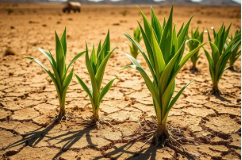
In a major relief for Punjab’s farming community, the Central Government has announced a plan to distribute certified wheat seeds worth ₹44.40 crore free of cost to small and marginal farmers under the Rashtriya Krishi Vikas Yojana (RKVY). The initiative aims to support farmers ahead of the upcoming rabi sowing season and boost wheat productivity across the state.
According to officials, the decision has been taken to ensure that every farmer, especially those with limited means, gets access to high-quality certified seeds for timely sowing. The distribution process will be carried out through government-approved agencies and agricultural departments to ensure transparency and reach at the grassroots level.
Punjab, known as one of India’s major wheat-producing states, is preparing for the new sowing season, and timely seed availability is crucial. By providing free certified seeds, the government aims to reduce farmers’ input costs and improve overall crop yields. The initiative is also expected to help farmers adopt newer, more resilient wheat varieties suited to changing climatic conditions.
Agriculture ministry officials said the program is designed to assist small and marginal farmers, who often struggle to afford certified seeds. “This intervention will not only enhance seed replacement rates but also improve the profitability of wheat cultivation in the state,” said a senior ministry official.
Experts estimate that using certified, high-yielding wheat varieties can increase productivity by 10–15 percent, contributing significantly to both farm incomes and national food security. The scheme also aligns with the government’s broader goal of promoting sustainable agriculture through better input management.
State agriculture officials and the Punjab government are working jointly to implement the initiative effectively. District-level monitoring committees will oversee the seed distribution process to ensure that the benefits reach genuine farmers without delay.
Agriculture experts have welcomed the move, calling it a timely and practical step to support Punjab’s farmers ahead of the rabi season. They believe that if implemented efficiently, the scheme could provide a fresh boost to wheat cultivation and reinforce Punjab’s status as a leading contributor to India’s food grain supply.














